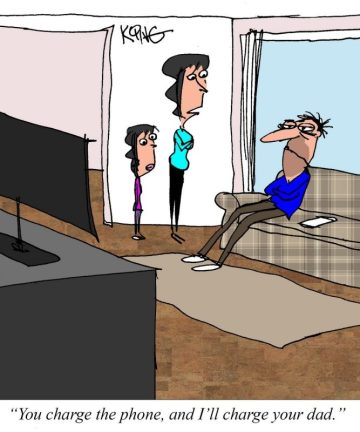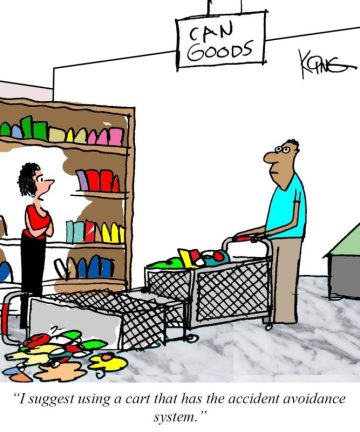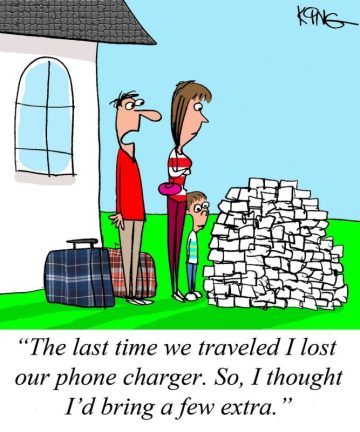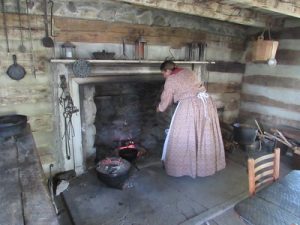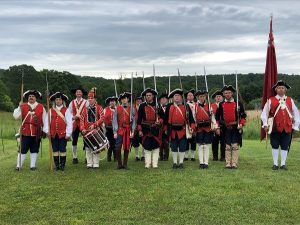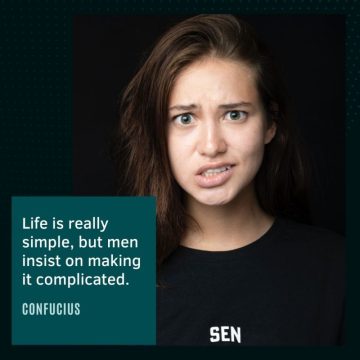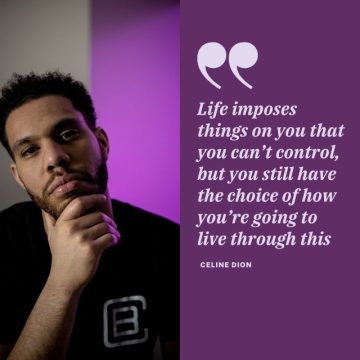State News
Governor Northam announces artifacts for new time capsule
RICHMOND—Governor Ralph Northam announced on September 7, 2021, the artifacts for the new time capsule, crafted by Richmond sculptor Paul DiPasquale. The capsule will be placed in the concrete pedestal of Richmond’s Lee Monument.
Historians believe a copper time capsule was placed in the cornerstone of the Lee pedestal on October 27, 1887. Records from the Library of Virginia suggest that 37 Richmond residents, organizations, and businesses contributed about 60 objects to the capsule, many of which are believed to be related to the Confederacy.
The statue itself will be removed on Wednesday. On Thursday, the original time capsule will be removed and handed over to the Department of Historic Resources. This new time capsule will be put in its place in the statue’s base, as that will remain for the time being. Should it be removed later, the time capsule will be buried nearby.
“This monument and its time capsule reflected Virginia in 1890—and it’s time to remove both so that our public spaces better reflect who we are as a people in 2021,” said Governor Northam. “The past 18 months have seen historic change, from the pandemic to protests for racial justice that led to the removal of these monuments to a lost cause. It is fitting that we replace the old-time capsule with a new one that tells that story.”


The new capsule was crafted by Paul DiPasquale who also created Richmond’s Arthur Ashe monument and Virginia Beach’s King Neptune statue.
“The 1887 capsule we will remove this week offers us an incisive bite of time when the Lee Monument was erected. Now in 2021, this capsule gives future Virginian’s artifacts of the tectonic transition that has happened to us,” said DiPasquale. “The pedestal marks the past and has a new message for the future: we, all of us, are the New Virginia.”
Artifacts for the new time capsule were suggested by members of the public and narrowed down to 39 final choices by a committee that included historians from the Richmond region’s leading historical and cultural museums and members of Governor Northam’s cabinet. The committee included:
• Heather Anderson, Community Engagement Coordinator at Black History Museum and Cultural Center of Virginia
• Alaysia Black Hackett, Deputy Chief Diversity Officer
• Jamie Bosket, Chief Executive Officer of the Virginia Museum of History & Culture
• Christy Coleman, Executive Director of Jamestown Yorktown Foundation
• Rita Davis, Former Counsel to the Governor
• Grindly Johnson, Secretary of Administration
• Julie Langan, Director of the Department of Historic Resources
• Bill Martin, Director of The Valentine
• Jennifer McClellan, Senate of Virginia, District 9
• Pamela Northam, First Lady of Virginia
• Alex Nyerges, Director and Chief Executive Officer of the Virginia Museum of Fine Arts
• Atif Qarni, Secretary of Education
• Scott Stroh, Executive Director of Gunston Hall
• Andrew Talkov, Senior Director of Curatorial Affairs at the Virginia Museum of History & Culture
• Dr. Sandra Treadway, Librarian of Virginia
• Dr. Janice Underwood, Chief Diversity Officer
The 39 artifacts are intended to reflect the cultural moment in Virginia’s, and the nation’s, history. In the past year and a half, Virginia has faced a global pandemic and a deep reckoning with racism. Protests for racial justice, sparked by the death of George Floyd, led to the removal of statues originally placed to memorialize those who fought to continue a way of life that enslaved other human beings. The artifacts are a snapshot of that moment in time, capturing both the protests of last year and the pandemic. They include a vaccination card, a photo of a Black ballerina in front of the statue, a Black Lives Matter sticker, a face mask, and a poem written in Unified English Braille. A full list of time capsule artifacts is listed below.
“In the midst of demonstrations and reclaiming space, my photo of a Black ballerina at America’s largest Confederate statue made national headlines in June 2020, surprising and inspiring viewers,” said photographer Marcus Ingram, whose photo will be included in the time capsule. “I am thrilled to have my print, my piece of history, be included in the new time capsule that aims to represent the Virginia of today. I am hopeful that future generations will see my photograph and understand what we stood up for.”
Artifact List
• “Ballerina at the Lee Statue” photo taken on June 5th, 2020, captured and submitted by Marcus Ingram
• Expired Vial of COVID-19 Pfizer Vaccine and CDC Vaccination Record Card suggested by Craig Fifer and contributed by the Virginia Department of Health
• National Geographic Special Issue “2020 in Pictures” with the cover image of Lee Monument in Richmond, VA suggested by Hope Wolf submitted by Connor Freche
• “Black Lives Matter” sticker submitted by Tangee Augustin and Abby Admete
• Collection of Michael Paul Williams’ Pulitzer prize-winning columns on Monument Avenue suggested by Michael Baker and contributed by Michael Paul Williams
• “Writing a new history” Kente cloth worn by the Commissioners of the Congressionally chartered 400 Years of African-American History Commission and Ghanian emissaries that participated in the 400th commemoration of 1619 at Point Comfort in Hampton, Virginia, now part of Fort Monroe National Monument, submitted by Governor Ralph S. Northam
• “New Virginians” booklet with portraits of 24 immigrants whose interviews formed the core of the Library of Virginia’s 2020 exhibition, submitted by the Library of Virginia
• General Assembly Acts of Assembly from the 2020 Special Session submitted by Senator Jennifer McClellan
• Virginia is for Lovers “pride” pin and sticker submitted by Virginia Tourism Commission
• “the protagonist” poem in uncontracted Unified English Braille written and submitted by Laura Minning
• “Better Together” LED Board coded by middle school girls at Patrick Henry Community College and submitted by Amanda Broome
• VA Ratify ERA sash and ERA 2020 pins submitted by Christine DeRosa and Julia Tanner
• “YOU ARE NOT ALONE” pink heart print found on Broad Street in front of the Institute of Contemporary Art on May 30, 2020, after a night of protests in Richmond, created by Studio Two Three and submitted by the Teele-Jordan Family
• Election Officer Badge for 2020 General Election submitted by Stephanie Hunter
• “Monument Avenue” Hip Hop Album by Noah-O and Taylor Whitelow suggested by DeMario Spurlock and contributed by Noah-O
• Prayer beads left by a family member who passed away from COVID-19 submitted by Tanzing Lahdon
• Danville Public Schools “First Lady” face mask submitted by First Lady Pamela Northam
• Photos of the June 4, 2020 press conference announcing the removal of the Lee Statue taken by Jack Mayer and submitted by Office of Governor Ralph S. Northam
• Steel railroad spike talking piece found near African Ancestral Burial Ground in Shockoe Bottom and used to promote conversations on racial healing, submitted by Coming to the
Table RVA
• Photos and fliers from “Stop Asian Hate” protests in May 2021 submitted by Shawn Soares
• Program and video from the dedication of Arthur Ashe Boulevard featuring a keynote from former Congressman John Lewis submitted by the Virginia Museum of History and Culture
• Letter describing VUUs history and commitment to the Richmond community-written and submitted by Virginia Union University’s Student Government Association President Joydan Lyons Parker
• Photo of the Virginia State Police at 14th and F Street NW in Washington helping DC Metro Police Department patrol the city for unrest after the insurrection at the US Capitol on January 6, 2021, submitted by Office of Governor Ralph S. Northam
• Essays and poems from Arcadia Middle School students reflecting on the experience of being a student during a pandemic submitted by the Eastern Shore Public Library
• Senate Resolution Commending the League of Women’s Voters agreed to by the Senate on February 6, 2020, to commemorate LMV’s centennial and the centennial of the 19th amendment, submitted by Deb Wake
• “Charlottesville’s Robert E. Lee Monument is Coming Down, Thanks to Me and Black Women Like Me” July 10, 2021, Teen Vogue article written and submitted by Zyahna Bryant
• Hard copy of the Virginia Poet Laureate Luisa Igloria’s work “Dear America” presented during Governor Ralph. S. Northam’s commemoration of Juneteenth in 2021 at Fort Monroe submitted by Luisa Igloria
• Gifts from the dedication ceremony from the Mattiponi and Pamunkey nations, hand-painted gourd rattle, and handcrafted earrings with sturgeon scale and beading, submitted by First Lady Pamela Northam
• Booklet which outlines Virginia’s first One Virginia Plan for Inclusive Excellence submitted by Dr. Janice Underwood
• “Rumors of War Wasn’t a Rumor” photo lithographic plate with oil-based ink & sealant created by Marshal Turner, Jade Gibbens, and Studio Two Three and submitted by Studio Two Three
• Copy of the LGBTQ Richmond Walking Tour created by Blake McDonald submitted by the Virginia Department of Historic Resources
• First Presbyterian Church Session 2020 minutes approving the formation of a Dismantling Racism – Building The Beloved Community Advisory Group, submitted by Amy Starr Redwine
• Video of the One Commonwealth Many Virginians: Uniting in Interfaith Prayer for Healing and Unity event submitted by the Governor Ralph S. Northam’s Office of Diversity, Equity, and Inclusion
• Piece of tarp from the unveiling of Kehinde Wiley’s Rumors of War Statue and photos from the unveiling event, submitted by the Virginia Museum of Fine Arts
• Document describing selected student submissions from the Governor’s Inaugural Black History Month Historical Marker Contest submitted by the Virginia Department of Historic Resources
• “Post-Colonial Love Poem” by 2021 Pulitzer Prize for Poetry Winner Natalie Diaz suggested by Dana Chesser and submitted by Natalie Diaz
• New Legacy Postcard created and submitted by Marc Cheatham and Noah Scalin
• List of artifacts in the previous capsule as described in a Richmond Dispatch article dated October 26, 1887, submitted by the Library of Virginia
• Photo collage of individuals who contributed artifacts to the new time capsule and thank you note submitted by Tori Feyrer
State News
New EPA Rules Will Force Fossil Fuel Power Plants to Cut Pollution
On Thursday, the U.S. Environmental Protection Agency released a sweeping set of rules aimed at cutting air, water, and land pollution from fossil fuel-fired power plants.
Environmental and clean energy groups celebrated the announcement as long overdue, particularly for coal-burning power plants, which have saddled hundreds of communities across the country with dirty air and hundreds of millions of tons of toxic coal ash waste. The ash has leached a host of toxins — including arsenic, mercury, lead, cadmium, radium, and other pollutants — into ground and surface water.

AES Indiana’s Petersburg Generating Station in Petersburg, Indiana, has been burning coal since the 1960s but will shutter all of its coal-firing units over the next few years. On Thursday, the U.S. Environmental Protection Agency released a sweeping set of rules aimed at cutting air, water, and land pollution from fossil fuel-fired power plants. (Robert Zullo/States Newsroom)
“Today is the culmination of years of advocacy for common-sense safeguards that will have a direct impact on communities long forced to suffer in the shadow of the dirtiest power plants in the country,” said Ben Jealous, executive director of the Sierra Club, one of the nation’s oldest and largest environmental organizations. “It is also a major step forward in our movement’s fight to decarbonize the electric sector and help avoid the worst impacts of climate change.”
However, some electric industry and pro-coal organizations blasted the rules as a threat to jobs and electric reliability at a time when power demands are surging. They also criticized the rule’s reliance on largely unproven carbon capture technologies.
America’s Power, a trade organization for the nation’s fleet of about 400 coal power plants across 42 states, called the number of new rules “unprecedented,” singling out the new emissions standards that will force existing coal plants to cut their carbon emissions by 90% by 2032 if they intend to keep running past 2039. Michelle Bloodworth, the group’s president and CEO, called the rule “an extreme and unlawful overreach that endangers America’s supply of dependable and affordable electricity.”
‘This forces that’
Many experts expect the regulations to be litigated, particularly the carbon rule, since the last time the EPA tried to restrict carbon emissions from power plants, a group of states led by West Virginia mounted a successful legal challenge that went to the U.S. Supreme Court.
But Julie McNamara, deputy policy director with the Union of Concerned Scientists, said the agency took great pains to conform the rule to the legal constraints outlined by the court.
“This rule is specifically responsive to that Supreme Court decision,” she said. “Which doesn’t mean that it won’t go to the courts but this is so carefully hewn to that decision that it should be robust.”
The four rules EPA released Thursday mainly target coal-fired power plants.
“By developing these standards in a clear, transparent, inclusive manner, EPA is cutting pollution while ensuring that power companies can make smart investments and continue to deliver reliable electricity for all Americans,” EPA Administrator Michael S. Regan said.
In some ways, they attach a framework to a sea change in electric generation that is already well underway, McNamara said.
Coal accounted for just 16% of U.S. electric generation in 2023, according to the U.S. Energy Information Administration. In 1990, by comparison, it comprised more than 54% of power generation. However, some states are more reliant on coal power than others.
In 2021, the most coal-dependent states were West Virginia, Missouri, Wyoming, and Kentucky, per a 2022 report by the EIA.
“This rulemaking adds structure to that transition,” McNamara said. “For those who have chosen not to assess the future use of their coal plants, this forces that.”
Heather O’Neill, president and CEO of the clean energy trade group Advanced Energy United, said the new regulations are a chance for utilities to embrace cheaper, cleaner and more reliable options for the electric grid.
“Instead of looking to build new gas plants or prolong the life of old coal plants, utilities should be taking advantage of the cheaper, cleaner, and more trusty tools in the toolbox,” she said.
The carbon rule
In 2009, the EPA concluded that greenhouse gas emissions “endanger our nation’s public health and welfare,” the agency wrote, adding that since that time, “the evidence of the harms posed by GHG emissions has only grown and Americans experience the destructive and worsening effects of climate change every day.”
The new carbon emissions regulation will apply to existing coal plants and new natural gas plants. Coal plants that plan to operate beyond 2039 will have to capture 90% of their carbon emissions by 2032. New gas plants are split into three categories based on their capacity factor, a measure of how much electricity is generated over a period of time relative to the maximum amount it could have produced. The plants that run the most (more than 40% capacity factor) will have to capture 90% of their carbon emissions by 2032. Existing gas plants will be regulated under a forthcoming rule that “more comprehensively addresses GHG emissions from this portion of the fleet,” the agency said.
Michelle Solomon, a senior policy analyst for Energy Innovation, an energy and climate policy think tank, predicts that most coal plants will close rather than install the costly technology to capture carbon emissions.
“Climate goals aside, the public health impacts of the rules in securing the retirement of coal-fired power plants is so important,” she said. Coal power in the U.S. has been increasingly pressured by cheaper gas and renewable generation and mounting environmental restrictions, but some grid operators have still been caught flat-footed by the pace of coal plant closures.
“I think the role of this rule, to provide that certainty about where we’re going, is so crucial to get the entities that have control over the rate of the transition to start to take action here,” she said. But the National Rural Electric Cooperative Association’s CEO, Jim Matheson, called the rules “unlawful, unrealistic and unachievable” noting that it relies on technology “that is not ready for prime time.”
And Todd Snitchler, president and CEO of the Electric Power Supply Association, a trade group for competitive power suppliers, called the rule “a painful example of aspirational policy outpacing physical and operational realities” because of its reliance on unproven carbon capture and hydrogen blending technologies to cut emissions.
A beefed-up Mercury and Air Toxic Standards rule
The EPA called the revision to the Mercury and Air Toxic Standards “the most significant update since MATS was first issued in February 2012.” It predicted the rule would cut emissions of mercury and other air pollutants like nickel, arsenic, lead, soot, sulfur dioxide, nitrogen oxide and others. It cuts the mercury limit by 70% for power plants fired by lignite coal, which is the lowest grade of coal and one of the dirtiest to burn for power generation.
For all coal plants, the emissions limit for toxic metals is reduced by 67%. The EPA says the rule will result in major cuts in releases of mercury and other hazardous metals, fine particulate matter, nitrogen oxides and carbon dioxide. The agency projects “$300 million in health benefits,” including reducing risks of heart attacks, cancer and developmental delays in children and $130 million in climate benefits.
Stronger wastewater discharge limits for power plants
Coal fired power plants use huge volumes of water, and when the wastewater is returned to lakes, rivers and streams it can be laden with mercury, arsenic and other metals as well as bromide, chloride and other pollution and contaminate drinking water and harm aquatic life.
The new rule is projected to cut about 670 million pounds of pollutants discharged in wastewater from coal plants per year. Plants that will cease coal combustion over the next decade can abide by less stringent rules.
“Power plants for far too long have been able to get away with treating our waterways like an open sewer,” said Thomas Cmar, a senior attorney at Earthjustice, a nonprofit environmental law organization, during a briefing on the new rules earlier this week.
Closing a coal ash loophole
Coal ash, what’s left after coal has been burned for power generation, is one of the nation’s largest waste streams. The 2015 EPA Coal Combustion Residuals rule were the first federal regulations for coal ash. But that rule left about half of the ash sitting at power plant sites and other locations — much of it in unlined disposal pits — unregulated because it did not apply to so-called “legacy impoundments” that were not being used to accept new ash.
“We’re going to see a long-awaited crackdown on coal ash pollution from America’s coal plants, and it’ll be a huge win for America’s health and water resources,” said Lisa Evans, a senior attorney with Earthjustice. “They are all likely leaking toxic chemicals like arsenic into groundwater and most contain levels of radioactivity that can be dangerous to human health.”
Groundwater monitoring data shows that the vast majority of ash ponds at coal plants are contaminating groundwater, said Abel Russ, a senior attorney with the Environmental Integrity Project. But under the old rule, Russ said, facilities could dodge cleanup requirements by blaming contamination on older ash dumps not covered by the regulation.
“This is a huge loophole,” Russ said. “You can’t restore groundwater quality if you’re only addressing half of the coal ash sources on site.”
However, several attorneys on the Earthjustice briefing said the new rules, which will require monitoring at clean up and hundreds of more ash sites, will only be as good as the enforcement.
“It’s meaningful only if these utilities obey the law. Unfortunately to date, many of them have not,” said Frank Holleman, a senior attorney with the Southern Environmental Law Center.
by Robert Zullo, Virginia Mercury
Virginia Mercury is part of States Newsroom, a nonprofit news network supported by grants and a coalition of donors as a 501c(3) public charity. Virginia Mercury maintains editorial independence. Contact Editor Samantha Willis for questions: info@virginiamercury.com. Follow Virginia Mercury on Facebook and Twitter.
State News
Number of Incarcerated Pregnant Women Increases Amid Opioid Epidemic
RICHMOND, Va. — Karlee Clements was six months pregnant, “full on into addiction,” and begging to go to jail because she was afraid she would kill her child.
Soon after, she was incarcerated at Riverside Regional Jail for a violation. Because of her baby’s low heart rate, she was sent to Chippenham Hospital, where she spent the remainder of her pregnancy.
Zip-tied to a hospital bed, with a Riverside officer next to her, Clements gave birth to a baby girl and spent three days with her, per Virginia law. Restraints are no longer allowed on inmates during labor, except under certain circumstances.
Clements went back to jail, and her baby experienced withdrawal for 30 days. Once she was released, Clements gave her baby up for adoption and started using drugs again.
“It became a way of living,” Clements said. “That’s the way I got through life.”
She went to rehab and stopped using heroin but began using methadone, a synthetic opioid often prescribed as part of recovery treatment and to combat withdrawal symptoms.
“Even though I love that baby, and I don’t want to hurt that baby, there’s just something inside of me where I can’t stop using,” Clements said.
The number of jailed pregnant women fighting addiction has increased amid the skyrocketing opioid use in the past decade that led Virginia to declare a public health emergency in 2016. While the state has started to fund more recovery and treatment efforts, incarcerated mothers have fewer resources. Women in jail say facing motherhood and addiction is a specific struggle that needs more attention, in addition to more uniform prenatal care.
There is no official census of how many pregnant women are incarcerated or their overall maternal health, a data gap the U.S. Department of Justice acknowledges and is addressing.
Approximately 3% of women admitted to U.S. jails are pregnant, according to a 2020 peer-reviewed study published in the Obstetrics & Gynecology journal. If that number was applied to the national jail population, there could be an estimated 55,000 pregnant women in jail.
Spike in Rates of Pregnant Women Using Opioids
Clements is now incarcerated at Chesterfield County Jail and involved in its recovery program, Helping Addicts Recover Progressively. She said security is the most beneficial thing she’s gotten out of HARP.
“I’m actually learning to love myself, and my feelings are coming back,” Clements said. “It’s okay to feel; I’m not used to feeling at all.”
The number of women with opioid-related diagnoses at the time of delivery increased by 131% between 2010-2017, according to a JAMA Network study. In Virginia, the number of infants exposed to a substance — including drugs and alcohol cases — rose 533% between 2000-2018, with a spike that also parallels the increased use of opioids.
Nearly 30% of females incarcerated at a state and federal level were charged with a drug offense, according to 2016 Bureau of Justice data, the most current available.
Almost half of incarcerated persons in the U.S. have a substance use disorder, according to the same 2016 data. And nearly half of state and federal inmates are parents of a minor.
Finding Recovery Behind Bars
Chesterfield County Sheriff Karl Leonard started the HARP program after annual overdose deaths in the county hit double digits on March 8, 2016.
People would get clean and sober in jail and then return to the community. In reality, nothing was being done to help them, Leonard said.
“We wanted to start releasing recovered addicts back into the community with the tools, the knowledge, the equipment to be able to deal with all those issues that led them to use drugs before they got into the jail,” Leonard said.
HARP currently does not offer programs geared towards pregnant women but does offer parenting classes.
The Chesterfield jail does not provide prenatal care, so pregnant inmates are sent to Riverside in Prince George's County. Riverside had 475 pregnant inmates in a little over eight years, according to the jail.
HARP predates the Opioid Abatement Authority, created by the General Assembly in 2021 to handle incoming opioid lawsuit settlement money. Virginia is beginning to receive millions of what will be an estimated $1.1 billion, according to the OAA.
“One of the rules for the use of the funds, which we disagree with very much, is that the funds cannot be used for any existing programs,” Leonard said.
According to its website, a locality cannot use OAA money to supplant existing expenditures but can receive funding if they expand existing programs or implement new programs.
Support for Incarcerated Pregnant Women
Many women do not even know they are pregnant when they enter jail, according to Henrico County West Jail Capt. Pamela Dismuke. Female inmates are required to take a pregnancy test when they enter.
“I like to say a lot of the time jail kinda saved them because had she not known she was pregnant, she’d probably still be doing drugs and hurting the baby even more,” Dismuke said.
Dismuke started a program for pregnant inmates two years ago. She contacted someone who works for the Department of Corrections and is a doula or a person who provides guidance and support to a pregnant woman during labor.
Incarcerated pregnant women need specific food, supplements, exercise, and even postpartum help that is not common practice throughout the system.
The nonprofit Virginia Prison Birth Project pairs pregnant women in the Henrico jail with a doula, shares nutritional food and information on a baby’s development and care, and a weekly yoga class. Doulas also offer support by delivering breastmilk to the baby’s caretaker.
According to its website, the organization provided the first doula-supported birth for a pregnant inmate in Virginia in 2019.
Many women learn through the program how drugs hurt their babies, and it helps them take better care of themselves, Dismuke said.
Bobbie Jo Lashway, a pregnant inmate at Henrico County West Jail, said there are few programs aimed at her subgroup despite large numbers of incarcerated pregnant women.
Lashway enjoys the yoga program and is thankful people take time out of their day to share experiences.
“It’s good on a human connection level that we don’t get in here,” Lashway said.
Funding Efforts to Combat the Epidemic
The OAA distributes 55% of incoming settlement funds to state agencies and localities that apply for funding, according to OAA Director of Finance Adam Rosatelli. A grants committee decides how to distribute the funds in line with opioid abatement efforts and the Virginia code.
The OAA has not funded any programs related to incarcerated pregnant or parenting women but has funded jail programs, according to Rosatelli.
“It was a pretty powerful thing to observe the work we do and how it is being put into action,” Rosatelli said about a visit last year to an OAA-funded recovery center for women in Washington County.
The OAA has distributed about $34 million, which has been used for initiatives such as recovery homes, education and prevention efforts, and marketing campaigns, according to Rosatelli.
Parental Drug Abuse a Top Cause of Child Home Removal
Henrico County received over $700,000 from the OAA to begin a treatment program for pregnant or parenting women with substance use disorders. The program will assist mothers and their children with housing costs, medical care, and behavioral health support.
Henrico also received $100,000 from the OAA to study gaps in service and resources for pregnant and nursing mothers in the region.
Neglect is the leading cause of a child’s removal from their home, followed by parental drug abuse. There was a 60% increase in children being removed from their homes due to parental drug abuse from 2010-2019, according to the Virginia Department of Social Services.
Over 1,600 kids were in foster care for this reason as of April 2024, according to VDSS data.
Clements has traveled a long road since she first stole pain pills from her mother. Now, she works through HARP to confront and heal the trauma that pushed her toward substance use. The program is helping her build back her self-esteem so that she can face continued challenges.
“This is literally the first time I’ve ever even said that story, but I’m able to say that without crying and feeling bad and feeling like it is my fault,” Clements said.
VCU InSight journalist Jimmy Sidney contributed to this report.
By Alyssa Hutton, Capital News Service
Video by Jimmy Sidney, VCU InSight
Capital News Service is a program of Virginia Commonwealth University’s Robertson School of Media and Culture. Students in the program provide state government coverage for a variety of media outlets in Virginia. VCU InSight is the capstone broadcast news program.
State News
Impact of Virginia Governor’s Veto of Recreational Cannabis Marketplace
Three years, four sessions, and one veto since the first legislative attempt, Virginia still does not have a recreational cannabis market. Potential investors say that makes it hard to plan for the future. Advocates and some politicians say the reasons the governor gave for his recent veto are only exacerbated by preventing recreational cannabis sales.
Gov. Glenn Youngkin recently vetoed House Bill 698 and Senate Bill 448, which would have created a framework for an adult-use, recreational cannabis market.
This session was not the first time the General Assembly acted to create a retail market. Lawmakers passed a bill in 2021, but the part of the bill that would create a recreational market had to also be passed the next year before it became law — which never happened. The part that did not need reenactment legalized simple possession of marijuana.
Republicans gained a House majority in 2022, along with a new governor who was uninterested in creating a cannabis market. Lawmakers skipped over the issue in 2023 and brought it back this year with a legislative Democratic majority.
Del. Paul Krizek, D-Fairfax, and Sen. Aaron Rouse, D-Virginia Beach, worked on a compromise between their two bills and expressed disappointment over the governor’s vetoes.
“Public servants are obligated to tackle pressing issues, regardless of their origin or culpability. They cannot cherry-pick which problems to address,” Rouse stated.
Youngkin is concerned the illegal market will thrive if a recreational market is established, but other lawmakers believe the lack of a legal market is driving up those numbers.
“States following this path have seen adverse effects on children’s and adolescent’s health and safety, increased gang activity and violent crime, significant deterioration in mental health, decreased road safety, and significant costs associated with retail marijuana that far exceed tax revenue,” Youngkin stated in his veto.
The better approach would be to revisit any discrepancies in enforcement, according to the governor.
“Governor Youngkin’s failure to act allows an already thriving illegal cannabis market to persist, fueling criminal activity and endangering our communities,” Krizek stated in an email. “This veto squandered a vital opportunity to safeguard Virginians and will only exacerbate the proliferation of illicit products.”
Rouse called the governor’s “dismissive stance” toward cannabis sales unacceptable.
The unregulated and untaxed illegal cultivation and distribution of cannabis generates at least over a billion dollars annually in Virginia, according to a 2020 Joint Legislative Audit and Review Commission, or JLARC, report.
As the law currently stands in Virginia, adults over 21 can legally use and possess cannabis for an amount up to 1 ounce. Green-thumb adults are allowed to cultivate four plants at home. Adults can also pay to get medical approval and purchase cannabis through state-approved dispensaries.
Advocates Disappointed, say Bill was Good
Chelsea Higgs Wise is the executive director of Marijuana Justice. She has tread the Capitol steps since 2019 to lobby and inform lawmakers. She testifies in committees about cannabis-related legislation, including equity measures and the modification of cannabis-related offenses.
The Black-led organization’s advocacy work includes a path forward for people who have been incarcerated on marijuana charges through repeal, repair, and rehabilitation. The organization also pushed for social equity programs that help formerly incarcerated people get into the legal cannabis business.
The legislation vetoed by the governor would have legalized it right, Higgs Wise said.
“It includes the equity portions, repair for communities, and certain funds,” she said. “This is what we've been promising Virginia.”
The excitement did not last long. A few weeks after the bill passed, it met the governor’s veto pen.
“It’s a grave disappointment that Virginia is going to have to wait for a safe and regulated cannabis market,” Higgs Wise said. “Gov. Youngkin’s obsession with the legacy market is misplaced, but we recognize the need for a regulated market for reinvesting our community.”
Marijuana Justice does not use the term black market and instead uses “legacy market.”
“The legacy market is thriving; we've always had a marijuana market here in Virginia and across the U.S.,” Higgs Wise said. “We don't need the government to tell us what that is. They're just coming in now to make a lot of money off of it.”
The Virginia Cannabis Equity Loan Fund would have provided grants and low-interest and zero-interest loans to qualified micro business applicants. The fund was called the social equity license in previous legislation, and Republicans attempted in 2022 to channel the money to other places and eliminate the qualifying provisions.
The micro business provisions were a way for people to get involved with what is anticipated to be a multimillion dollar business, including veterans of the U.S. armed forces as long as they met certain qualifications.
Illegal markets often still thrive in the first few years after a state legalizes cannabis sales. That has to do with equity provisions, or lack thereof, according to Higgs Wise.
“Their people that they know are not selling it, that means it is not in their neighborhood; it’s too expensive,” she said.
The familiar aspect of connecting with the local supplier, often a friend or someone from the community, also does not come with extra fees.
“These are the equity portions that we have to think about for the consumers as well as for the business owners,” Higgs Wise said.
The first year of the recreational market could see sales between $123 million to $206 million, according to JLARC estimates from the bill’s impact statement. By year five, sales were forecast to be between $609 million to just over $1 billion.
Lawmakers settled on an 8% marijuana tax, with sales and use tax at 1.1% percent. Localities had the option to tax up to 2.5%, and include a food and beverage tax.
Recreational marijuana sales could bring in $6.41 million in the first year from the 8% tax alone. By the fifth year, the tax revenue was forecast at $66.41 million.
The legal marijuana market would overtake the illegal market by year four and have nearly two-thirds of the sales by year five, even with much higher tax rates, JLARC reported in 2020.
JLARC looked at the reported cannabis use rates compared to the use rates of other states to determine this figure.
Higgs Wise said to “rest assured” her organization will be back next year to push for a recreational market.
“For those who want to participate in Virginia's cannabis industry, we welcome you to join us to fight for a fair and just market,” Higgs Wise said.
Impact on Virginia Cannabis Companies
Griffin Moon and Dave Bredard launched Chester Cannabis Co. two years ago to sell hemp products that were legal at the time and had hopes of getting into the cannabis market.
“So that’s definitely the biggest challenge for companies in this industry is all the changing legislation,” Moon said. “You just never know what’s coming.”
Currently, hemp products cannot contain more than 0.3% THC. Moon and Bredard disposed of a number of products after lawmakers cracked down on THC levels in hemp in 2022. Lawmakers sought more regulation of delta-8 sales, according to a report from the Virginia Mercury.
They had to go back to the lab and create a new product line, Moon said.
“It’s hard to kinda set up a business if you can only think of a year or a couple years in advance and set up, you know, five, 10 years down the line,” Moon said. “It's just hard to think of the future.”
Policy Standpoint
Gregory Habeeb, president of Gentry Locke Consulting, represents Virginia’s Cannabis Association. He served as a Republican delegate representing southwestern constituents from 2011-2018.
A roughly $3 billion illegal cannabis market already exists, Habeeb said.
“So the real issue is how we should regulate that market,” Habeeb said. “By passing a bill to regulate it, we can address the public health and safety concerns.”
The illegal market continues to grow, going untaxed, unregulated, with untested products sold, according to Habeeb.
“We’re hearing from law enforcement all over the state that they want something done, it’s time to get it done,” Habeeb said.
Polls continue to show that recreational cannabis is a bipartisan issue. A majority of Virginians support retail sales. Democrats have the most support (70%), followed by Independents (54%) and then Republicans (46%).
“Nobody wants a system where unlicensed drug dealers sell untested, untaxed products,” Habeeb said. “I think there’s going to be some political consequences, as more and more people come around to the idea that we need to regulate this market.”
VCU InSight reporter Mark Jones contributed to this report.
By Michael Chun, Capital News Service
Video by Mark Jones, VCU InSight
Capital News Service is a program of Virginia Commonwealth University's Robertson School of Media and Culture. Students in the program provide state government coverage for a variety of media outlets in Virginia. VCU InSight is the school’s broadcast capstone.
Local News
Virginia Opens Early Voting for June Primary Starting May 3
Early voting for the upcoming primary elections in Virginia is set to commence on May 3, 2024, allowing voters to cast their ballots well ahead of the official election day on June 18. Residents looking to vote early can do so in person at the general registrar’s office of the jurisdiction where they are registered. Voters are required to present a valid ID to participate.
Absentee voting is also an option for those unable to vote in person. Starting May 3, absentee ballots will be mailed out to those who have requested them, including military and overseas voters. Voters can request an absentee ballot online through the Citizen Portal, by mail, in person, or by contacting their local general registrar’s office. The deadline for requesting a mailed absentee ballot is set for June 7.
Additionally, Virginia will conduct dual primaries, meaning voters will decide whether to vote in the Democratic or Republican primaries. It’s important to note that voters can choose which primary to participate in, but they cannot vote in both. This does not affiliate a voter with any particular party, as Virginia does not register voters by party affiliation.
The last day to register to vote for this election is May 28. However, Virginia also offers same-day registration, allowing voters to register on the spot at an early voting location and cast a provisional ballot.
Electronic marking tools for absentee ballots are available for voters with specific needs, such as visual or manual dexterity impairments. There’s also curbside voting for individuals over 65 or those with disabilities.
Voters with questions about absentee or early in-person voting can call their general registrar’s office or the Department of Elections at 1-800-552-9745 or email info@elections.virginia.gov.
Agriculture
Feds to Require Bird Flu Tests of Dairy Cattle Before Transport
Starting next week, certain dairy cattle must be tested for avian influenza before they can be transported to a different state, the U.S. Department of Agriculture announced Wednesday.
The requirement is among several that will expand the testing, reporting, and monitoring of the cattle to reduce the spread of bird flu among the animals.
The new rules follow evidence that highly pathogenic avian influenza — which is commonly spread by migrating birds — has transmitted from cow to cow and from cattle to poultry, and that infected cows might not show symptoms of illness, the USDA said. Last week, an analysis of the virus from a Kansas cow showed that it had acquired “an adaptation to mammals.”
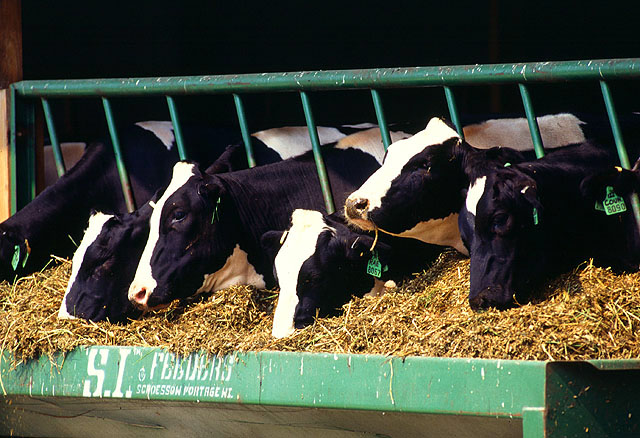
USDA will require certain dairy cattle to be tested for avian influenza before they can be transported to a different state. (Photo by Scott Bauer/USDA Agricultural Research Service)
On Tuesday, the U.S. Food and Drug Administration said tests had revealed fragments of the virus in pasteurized milk, but that they don’t pose a risk to public health.
“While we are taking this action today, it is important to remember that thus far, we have not found changes to the virus that would make it more transmissible to humans and between people,” the USDA said Wednesday.
It has been a month since the virus was first confirmed to have infected dairy cattle in Texas. The virus has now been detected in 33 dairy herds in eight states, the USDA said. Part of that spread has been attributed to the transportation of infected cows to new herds.
The cows most often recover from infection after a week or so, but their tainted milk cannot be used for commercial human consumption. The virus is often deadly for poultry and can rapidly infect flocks.
The rules set to take effect on Monday require lactating dairy cattle to test negative for influenza A before they are transported across state lines, and that requirement might be expanded to other types of dairy cattle in the future.
Labs must also report their confirmed infections of livestock to the USDA, and certain herd owners must provide details about where their cattle have been transported.
Further information about the new rules is forthcoming, and state agriculture officials declined for now to say what impact they will have on Iowa dairy farmers.
“We are still awaiting specific guidance from USDA regarding this new interstate movement order,” said Don McDowell, a spokesperson for the Iowa Department of Agriculture and Land Stewardship.
John Maxwell, a dairy farmer near Davenport, Iowa, predicted that the effects for most dairies in Iowa will be inconsequential and that it’s best to be cautious and increase testing until more is known about the disease.
“We have to do tests anyway,” he said, in reference to dairy cattle he sells out-of-state. “So it would be one more test and whatever the cost it might be. One more is not the end of the world.”
The USDA has said it will reimburse farmers for testing of sick and asymptomatic cattle.
States with confirmed bird flu infections of dairy cattle include Kansas, Idaho, Michigan, New Mexico, North Carolina, Ohio, South Dakota and Texas.
A virus similar to what has infected cows has been found in poultry flocks in Kansas, Michigan, Minnesota, New Mexico and Texas, the USDA said.
by Jared Strong, Virginia Mercury
Virginia Mercury is part of States Newsroom, a nonprofit news network supported by grants and a coalition of donors as a 501c(3) public charity. Virginia Mercury maintains editorial independence. Contact Editor Samantha Willis for questions: info@virginiamercury.com. Follow Virginia Mercury on Facebook and Twitter.
State News
Fires Have Consumed Nearly 20,000 Acres in Virginia This Spring. That Could be Good for the Environment.
Almost 20,000 acres have been lit by flames that primarily torched the western and central parts of the state so far during Virginia’s 2024 spring fire season. With about a week left until the season ends, that is double the amount of acres affected annually in the state across its 10-year average.
There’s no question that the fires visibly caused an immediate loss of vegetation and wildlife habitat, but state and federal officials said in interviews with the Mercury last week the blazes provide some benefits and are a centuries-old resource management tool.
“It does play an important role in the ecosystem,” said Michael Downey, assistant director for wildfire mitigation and prevention at the Virginia Department of Forestry. “In the public’s eye it is a natural disaster, but we do try to keep it in a controlled, contained environment.”
Prescribed, or controlled, blazes are regularly implemented by state and federal agencies, which include the Department of Forestry, the Department of Wildlife Resources and the U.S. Forest Service. It’s the unruly nature of the wildfires that can cause concern, particularly given the proximity to neighborhoods and communities where people live.
“We don’t want people thinking, ‘Let’s go start a wildfire,’ but there are benefits,” said Michael Puckett, a small game project leader at DWR, adding that the fires are not solely a matter of loss of wildlife habitat, but a “matter of change.”
It’s the human communities abutting the wooded areas that are inhibiting wildlife’s ability to roam freely to and from impacted areas. Humans also contribute to some of the causes of the fires.
“As wildfires grow in severity/intensity, we will see species moving in new patterns and places in order to find new habitat,” both immediately after fires and in the longer term as species’ ranges shift, said Misty Boos, U.S. conservation policy manager at Wildlands Network.
“This underscores the importance of protecting large, connected landscapes and wildlife corridors so species can move and adapt, but it also demonstrates the importance of wildlife coexistence.”
Flora and Fauna
Starting at the ground level, the fires’ effects can matriculate down into the soil, depending on the severity, determined by fire intensity and duration.
The fires’ effect can increase dirt’s water repellency, or inability to hold water, leading to it eroding and potentially ending up in waterways.
Following the fires that hit the state in 2016, researchers at Virginia Tech found that some severely-burned areas were water repellent at rates of 68-74%. The unburned areas showed water repellency at a rate of 0-18%, the research found.
“A lot of fires in [Virginia] don’t get as large or hot as those out west, but in local areas we can see pretty severe burn severities,” said Ryan D. Stewart, an associate professor at Virginia Tech.
“Areas that have moderate to severe burn severities can have issues like the upper duff and organic layers being consumed, and development of a layer a few inches deep that does not easily rewet.”

A forest in Highland County during a prescribed burn by the Virginia Department of Forestry in 2021. (Sarah Vogelsong/Virginia Mercury)
On the flora aspect, the clearing of taller trees can pave way for sunlight to reach the lower level vegetation, said Puckett. Creating a more diverse portfolio of vegetation within the forest can create a more diverse ecosystem, added Lane Gibbons, fire management specialist at Shenandoah National Park.
“If you kind of think of it in terms of investing, you don’t invest all of your money in one thing. That’s too much of a gamble,” said Gibbons. “You really want a diverse portfolio. It works very [similarly] in forests. If you have more of a diverse portinfo — tall versus short, young versus old — if you have a greater variation [and] then you have a greater variation of types of organisms using those resources.”
Over time, forests in Virginia have become more resilient, with thicker oak trees popping up in places more susceptible to fires, Gibbons added, with less-deterrent maple pines growing in areas less likely to catch a blaze.
While oaks may be stronger, they also can attract invasive animal species, like the Spongy Moth, whose presence requires some maintenance and can be found throughout the state.
The caterpillar-like creatures provide benefits to forested areas by thinning out trees, allowing other plants to grow. But the bugs feed primarily on the oaks attracting them, which, in addition to their fire resilience, provide numerous benefits to the climate, including capturing carbon in the atmosphere.
“We’re looking at ways to bring back oak and fire is one of those ways to do a timber stand improvement,” Downey said, describing the process of removing undesirable species and then setting fires to bring back nutrients into the soil. “That’s sometimes what oak needs for it to regenerate.”
On the fauna aspect, the Wildlife Center of Virginia took in a bear cub found to suffer from smoke inhalation. Smaller amphibious animals like the box turtle suffer from the havoc wreaked by the blazes, because they live in small brush or leaf litter and can’t move out fast enough.
But larger wildlife that call the western parts of the state home, like turkey or small game like squirrels, may be displaced immediately, but sometimes they can be seen returning to the area before the smoke clears, Puckett said.
“We have enough moisture in the system here,” said Puckett, adding that wildlife can return within a year. “It’s not like cases out west that may burn down into the soil with the dry climate and lack of rainfall. Things don’t tend to recover as quickly as they do here.”
Human influence
It’s often humans, who infringe on animal habitats, that create cause for concern related to wildfires.
According to information released in January by the Weldon Cooper Center for Population Estimates, some rural areas of Virginia saw losses in population while others saw gains. Page County’s population grew by 2 to 4% from 2020 to 2023. Some central and eastern areas of the state, including Louisa County, grew by over 4%.

Population change from 2020 to 2023. (Courtesy of Weldon Cooper Center Population Estimates)
Those increasing populations spur the development of communities abutting wooded areas that frequently prevent wildlife from being able to roam freely away from fires. Republican Gov. Glenn Youngkin signed House Bill 309 and Senate Bill 461, which directs the Virginia Department of Forestry to create a plan that includes protection of wildlife corridors, and large contiguous blocks of forests.
“As we’ve seen, events like wildfire (as well as floods, hurricanes, extreme snow storms, etc.) can temporarily bring wildlife into closer proximity to people, which can cause conflicts,” said Boos, with Wildlands Network.
More development means more utility infrastructure, such as electric power lines, getting built. The strong winds this past season that led to power lines being knocked down and sparking blazes, instead of natural causes like lightning strikes that happen in Alaska.
“80 to 90% of fires are caused by humans,” Downey said.
When asked about downed power lines causing some of the fires this past spring, spokesperson for Shenandoah Valley Electric Cooperative said the utility, “will continue to cooperate with all affected localities to assess damage as we rebuild damaged power grid infrastructure.”
“This widespread event, combined with extremely low humidity, made conditions favorable for wildfires,” said Preston Knight, SVEC spokesperson. “Many communities throughout our service territory have experienced wildfires and our hearts go out to those who have suffered anguish and loss.”
Residents can clear debris from around their homes to prevent the fires from spreading, a task the Department of Forestry can help with despite their limited capacity, Downey said.
“We can only do what we can with our resources,” Downey said.
Impact going forward
Leading up to the fall and spring fire season, there were periods of drought identified by the Department of Environmental Quality. A report from the U.S. The Department of Agriculture found that “increased fuel load and more frequent droughts may increase wildfire frequency and intensity within the Southeast.”
That same USDA report said ways to make forests more resilient included, “taking steps necessary to appropriately manage stand density, hydrologic characteristics, and natural habitats,” and that these steps “can also have a positive impact on the ecological functioning and overall health of the forest.”
Adding fuel to the fire, literally: A study out of the University of California Riverside found plants are more easily burning as a result of absorbing more carbon that’s in the air, carbon created by pollution.
Creating markets for pulpwood and biomass that come from the over 16 million acres of forests in Virginia, about 80% of which are privately owned, can help reduce fuels by removing “less desirable species and residuals from the understory and floor of the forest,” said Corey Connors, executive director of the Virginia Forestry Association.
One of the authors of the University of California study’s said in a statement that, “we do need to implement better fire control and have more prescribed burns to use up plant fuel. We need to get rid of the old stuff.
“But the best way to decrease wildfires is to mitigate our carbon dioxide emissions,” Gomez said. “We need more emission control now.”
In Virginia the largest sources of emissions are transportation, followed by the commercial industry sector and electricity generation, according to DEQ.
While international research points to human-created emissions causing climate change, the impacts of climate change on the fires affecting the adaptability of the ecosystem in forests is still being determined, Gibbons said.
“It’s a topic that we’re trying to figure out,” he said. “We’ll implement strategies as we learn more.”
by Charlie Paullin, Virginia Mercury
Virginia Mercury is part of States Newsroom, a nonprofit news network supported by grants and a coalition of donors as a 501c(3) public charity. Virginia Mercury maintains editorial independence. Contact Editor Samantha Willis for questions: info@virginiamercury.com. Follow Virginia Mercury on Facebook and Twitter.








